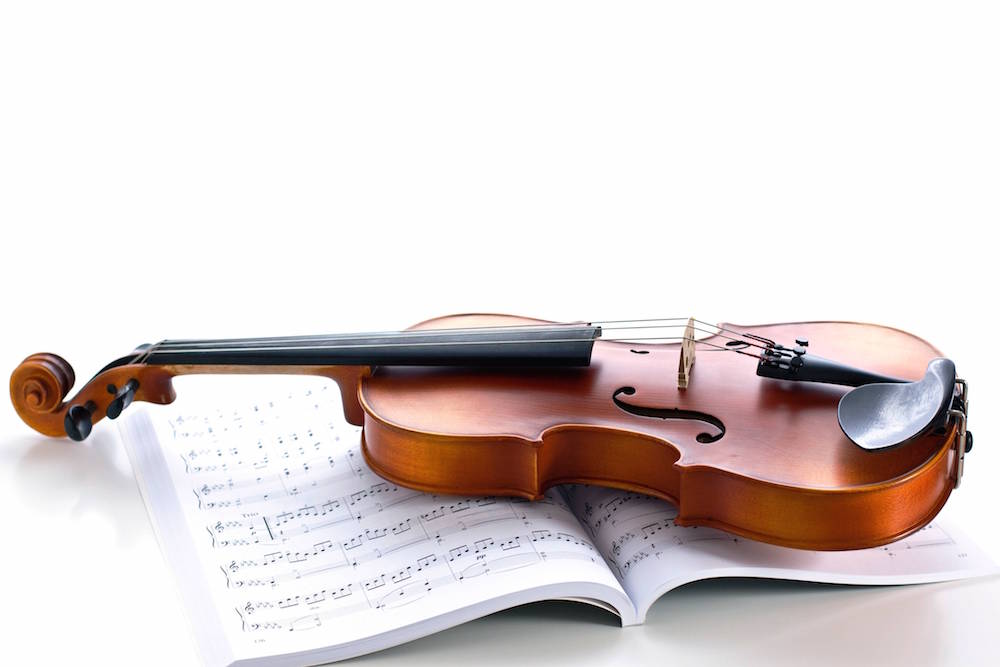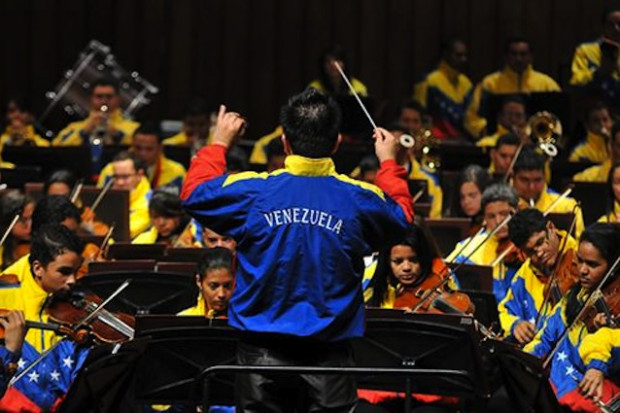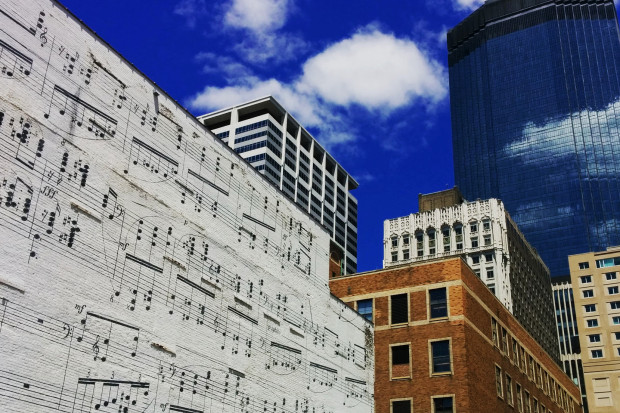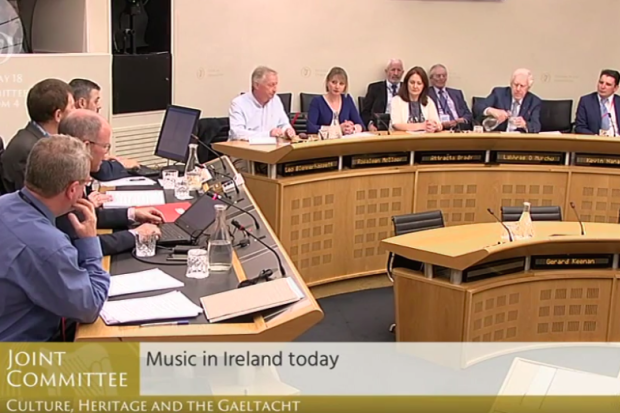
Music in the Primary School
Published below are the recommendations for music in the primary school, which were submitted in March to the Minister for Education and Science by The Forum for Music in Ireland. E-mail forum [at] cmc.ie for more information.
Music in the Primary School
The Forum for Music in Ireland was founded in June 1999 as an umbrella body for music in Ireland. Membership is open to organisations and individuals, whether professional or amateur, working in or concerned with all genres of music in Ireland.
The Forum’s aims are:
1. To create an active network of those interested in music in Ireland.
2. To give a voice to music in Ireland and to influence action in support of it.
The Forum currently has over 100 members of whom some 90 are organisations, many of them representative bodies in the fields of traditional, classical, contemporary, rock, popular and jazz music. Also represented by the Forum are festivals, educational establishments at second and third level, Local Authority arts officers, performing groups and music libraries.
The Forum for Music in Ireland meets in plenary session twice a year and devoted the first two sessions after its establishment to the discussion of music at primary level. In addition, members were invited to make written submissions on the subject. This paper, which has been formulated by the Council of the Forum, encapsulates the considered views of our members. It is being presented to the Minister for Education and Science for active consideration and is being widely circulated to all other interested bodies. It consists of a series of recommendations for the improvement of music in the primary school.
The Forum believes that this is an opportune time for making a new start at national level to improve the state of music education in Ireland. It welcomes the development of a new curriculum as defined in the document, Music: Arts Education Curriculum (Government of Ireland 1999) and such new initiatives as the recent announcement of the provision of capital funding for the purchase of arts equipment (including music) by primary schools. Nevertheless it believes that much more needs to be done as the following recommendations show.
Music in the Primary School
Recommendations from the Forum for Music in Ireland
The continuing poor state of music in Irish primary schools has been of concern to musicians and music educators for many years. When the Forum for Music in Ireland was established its members were unanimous that the first area the Forum should turn its attention to was music at primary level. It was agreed that an appropriate exposure to playing and listening to all forms of music at this level is the key to an individual’s future participation in, and enjoyment of, music-making later in life. Furthermore, it was clear that the absence of proper music provision in primary schools is having a detrimental effect on all other areas of musical activity in this country.
Music is at present the poor relation of arts education. Essentially it is restricted to those lucky few whose parents are able to pay for music lessons or take their children to concerts, and who are geographically close enough to the larger centres of population to do so. No child passes through primary school without an education in art (drawing and painting, etc.) and literature (writing poems and stories, etc.), yet it is perfectly possible for a child to leave primary school without an education in music (playing an instrument or singing in a choir, etc.). The Forum believes that the lack of a systematic music education in the primary school is having a serious negative impact on the life of the individual and on society as a whole. This deprivation is being felt throughout all sectors and genres of music-making in Ireland and unfortunately it creates a circular problem, whereby the value of music is not understood because it has not been experienced.
Preamble
It was clear from all the Forum’s discussions and submissions that the following general points, which form the context for this submission, are unanimously agreed:
• Music is valuable, for a variety of compelling reasons, personal and social.
• All forms of music — music of different styles, periods and cultures — are valuable.
• For Irish people, Irish music in all its forms, and music making in Ireland, are of particular importance.
• Experience of live performance is an essential component of the experience of music.
• Children may accept or reject some or all forms of music, but they must be given the choice of doing so.
• Research has shown that active participation in music-making brings added benefits in terms of physical, mental and social development.
• Access to music education in the primary school, the most important part of the formal education system, is a birthright of all children.
• The provision of music education in the primary school is primarily the responsibility of the State, chiefly through the agency of the Department of Education and Science.
• Music education in Irish primary schools is currently in an unsatisfactory state, although recent moves to improve its condition are welcome. Provision is not universal but is haphazardly dependent on local circumstances and on the enthusiasm and skills of particular teachers. Many teachers feel uneasy about teaching music and are unsure about how best to do so.
• The music section of the new primary school curriculum, which awaits implementation, is to be warmly welcomed.
• If the music section of the new curriculum could be delivered in full, to all children, music education in the primary school would be transformed.
• The person who is chiefly responsible for music education is the classroom teacher, with the support and assistance of the specialist music teacher, the school community and in particular the head teacher and school board, parents, the outside community, teacher education centres, local libraries, music associations, radio and television stations, etc.
Recommendations
from the Forum for Music in Ireland for the improvement of Music in the Primary School
1. The Child
(a) As listener and responder
• Every child should be educated in music in a variety of ways as envisaged by the new curriculum.
• Every child should be exposed to a wide range of recorded music of high quality in all its main forms.
• Every child should be exposed to a range of live music of high quality in all its main forms.
• Every child should be encouraged to respond to this music in a variety of ways as envisaged by the new curriculum.
(b) As performer
• Every child should be given some experience in making music systematically, both vocally and on instruments envisaged as suitable by the new curriculum, such as percussion instruments, recorders, tin whistles, and in exploring sound and sound materials.
• Special provision should be made for every child who wishes further experience of music making.
• Special provision should be made for children of particular talent, on a withdrawal-from-class basis.
(c) As composer
• Every child should be systematically given experience in composing music along the lines envisaged by the new curriculum.
2. The Classroom Teacher
• Must be supported on a continuing basis as the primary provider of music education along the lines envisaged by the new curriculum.
• Must be provided within the school with the necessary hardware for teaching music in the classroom: CD player, tape recorder, minidisc player, musical instruments, computers, keyboards, etc.
• Must be provided with other necessary teaching materials and resources: CDs, songbooks, videos, CD-ROMs, Internet access, etc.
• Must be supported and facilitated in bringing live performers into the school.
• Must be supported as required by the specialist music teacher.
• Should be supported as required by the school community, parents and the outside community. Head teachers should have a particular responsibility for providing for music by encouragement, by the timetabling of shared music resources within the school, and by facilitating teachers taking pupils to concerts, festivals or competitions.
3. The Specialist Music Teacher
(a) In the school
• Members of staff with special interest could take responsibility for music in the school, and a post of responsibility could be created for this purpose.
• Visiting professionals should train the classroom teacher.
• Visiting professionals — possibly peripatetic teachers — should teach areas of music outside the competence of the classroom teacher.
• Visiting professionals should have proper security of employment and proper remuneration.
4. Teacher Education
(a) Colleges of Education
• All teachers should receive pre-service education in the teaching of music to the levels envisaged by the new curriculum.
• Teachers specialising in music should receive education to enable them to support the classroom teacher, and to cater for particularly interested and particularly talented pupils.
• Music Education should be offered as a degree subject.
(b) In-service training
• Classroom teachers should receive in-service education individually within the classroom and in groups within the school.
• Classroom teachers and teachers specialising in music should receive in-service education at summer courses.
5. The Department of Education and Science (DES)
• The DES should immediately implement the music section of the new curriculum.
• The DES should increase the time allocated for music in the weekly timetable.
• The DES should achieve realistic staffing levels in its music inspectorate and specialist music resource and support staff.
• The DES should establish a Curriculum Support Team for the national implementation of the new curriculum.
• The DES should establish a Curriculum Development Unit for the generation of music teaching materials for the classroom teacher, such as specially compiled CDs, videos, CD-ROMs, etc. This unit should link with the pre-service teacher education colleges.
• The DES should immediately provide grants to schools specifically for the purchase of music resources, including musical instruments. These should reflect the needs of each school.
• The DES should establish a task force for the improvement of music in the primary school which would consist of teachers, parents, DES staff and other music interests.
• The DES should provide funding for primary-school-directed workshops of music organisations.
• The DES should encourage the provision of school music programmes on radio and television.
• The DES should set up a special one-year training course for the provision of specialist teachers in primary school.
• The DES should carry out an audit of the current position nationally: examine teacher training, survey successful initiatives currently in operation with a view to implementing them nationally, and make an inventory of existing music resources.
The recommendations above constitute the considered views of the Forum for Music in Ireland. The Forum believes their immediate implementation is a matter of crucial importance for the well-being of music and the arts in Ireland.
Dr Joseph Ryan (Chairperson)
On behalf of the Forum for Music in Ireland
March 2001
Members of the Council
Nicholas Carolan, Irish Traditional Music Archive; Gerry Godley, Improvised Music Company; Tom Munnelly, Dept of Irish Folklore, University College Dublin; Agnes O’Kane, Irish Association of Youth Orchestras; Eve O’Kelly, Contemporary Music Centre; Joseph Ryan, Contemporary Music Centre.
Published on 1 May 2001












